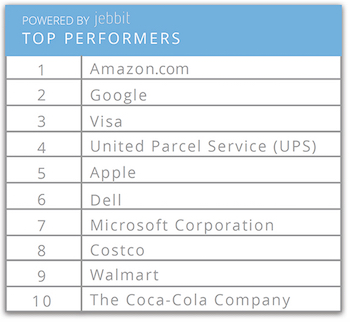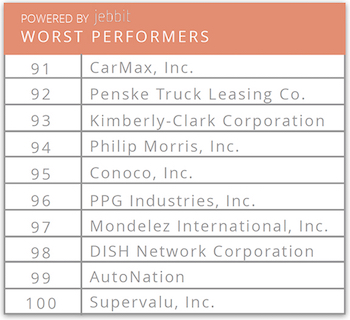Consumers regularly turn over their personal information to brands in exchange for special offers and personalized experiences, and of course, the data gleaned from these inquiries can produce invaluable material for lead generation, but asking for too much information can quickly drive consumers away, according to a recent survey by data platform Jebbit.
 |
The study, which sought to analyze how much consumers trust the world’s most well-known brands, asked respondents to list the types of behaviors that provoke them to distrust a company that asks for their personal information.
As it turns out, many consumers often think that brands sometimes ask too many questions. About 40 percent of respondents said they distrust a brand when it asks them for too much information. Nearly a third (28 percent) said they distrust brands that’ve been involved in public data scandals. Nearly one-in-five (16 percent) said they distrust brands that’ve relied on inaccurate information to market them, and 10 percent said they distrust a brand that engages in “creepy” advertising practices.
 |
By contrast, the survey sought to uncover what behaviors could cause brands to be seen in a more positive light. A majority of respondents (33.3 percent) said declining to show ads, offers or messages based on data consumers didn’t supply led them to trust brands most, followed by storing and using only personal info that’s relevant to the product they buy (33.2 percent) and revealing what info brands have on them (24 percent).
The survey also asked respondents to rank, on a scale of 1 to 10, how much they’d trust a list of 100 brands if those brands offered them offers, goods and services in exchange for data. The companies taking the top–trusted slots were Amazon, Google, Visa, UPS and Apple. CarMax, Philip Morris, Conoco, DISH Network and Autonation were among the worst-ranked brands.
Jebbit’s report, “The State of Consumer Trust” surveyed 1,000 U.S. adult smartphone users in November. Participants were sourced through Facebook, Twitter, Instagram and Amazon’s Mechanical Turk.


 Abandon traditional content plans focused on a linear buyer progression and instead embrace a consumer journey where no matter which direction they travel, they get what they need, stressed marketing pro Ashley Faus during O'Dwyer's webinar Apr. 2.
Abandon traditional content plans focused on a linear buyer progression and instead embrace a consumer journey where no matter which direction they travel, they get what they need, stressed marketing pro Ashley Faus during O'Dwyer's webinar Apr. 2. Freelance marketers and the companies that hire them are both satisfied with the current work arrangements they have and anticipate the volume of freelance opportunities to increase in the future, according to new data on the growing freelance marketing economy.
Freelance marketers and the companies that hire them are both satisfied with the current work arrangements they have and anticipate the volume of freelance opportunities to increase in the future, according to new data on the growing freelance marketing economy. Home Depot's new attempt to occupy two market positions at once will require careful positioning strategy and execution to make it work.
Home Depot's new attempt to occupy two market positions at once will require careful positioning strategy and execution to make it work. Verizon snags Peloton Interactive chief marketing officer Leslie Berland as its new CMO, effective Jan. 9. Berland succeeds Diego Scotti, who left Verizon earlier this year.
Verizon snags Peloton Interactive chief marketing officer Leslie Berland as its new CMO, effective Jan. 9. Berland succeeds Diego Scotti, who left Verizon earlier this year.  Norm de Greve, who has been CMO at CVS Health since 2015, is taking the top marketing job at General Motors, effective July 31.
Norm de Greve, who has been CMO at CVS Health since 2015, is taking the top marketing job at General Motors, effective July 31.


 Have a comment? Send it to
Have a comment? Send it to 
No comments have been submitted for this story yet.